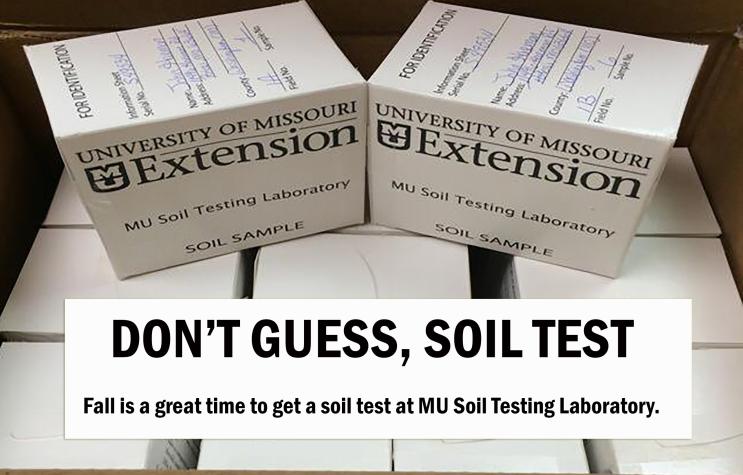COLUMBIA, Mo. – If a little is good, a lot must be better.
That’s often the approach home gardeners take when plants and flowers don’t do well, says University of Missouri Extension soil scientist Manjula Nathan. But adding more fertilizer and topsoil without testing the soil may be a waste of money. It also can be bad for the environment because excess nutrients often leach into water supplies.
A soil test provides information on pH, reserved acidity, nutrient levels and organic matter content along with fertilizer and lime recommendations based on your plants’ specific needs, Nathan says.
Fall is a good time to take a soil sample for testing, she says. Test your soil every three years on established lawns. If you have a problem with your lawn, test annually.
She also recommends testing new lawns before they are established. This makes it easier to amend the soil. For home gardens, consider testing soil every two to three years if fertilizers such as phosphate or potash and soil amendments like manure or compost have been used regularly.
The MU Soil and Plant Testing Laboratory provides reliable, low-cost tests for soil, plant, water, manure, compost and greenhouse media.
You can take samples to your county MU Extension center, or you can submit directly to the lab at 23 Mumford Hall on the MU campus by mail or in person. A basic soil test costs $15 per sample when submitted directly to the lab. There is a small shipping charge if you take samples to an MU Extension center. Test results can be emailed, accessed online or mailed as printed copies.
Go to extension.missouri.edu/programs/soil-and-plant-testing-laboratory for downloadable sample submission forms, instructions for taking and submitting soil samples, information about tests and fees and a guide to interpreting test results. For questions, call 573-884-0623 or email soiltestingservices@missouri.edu.
